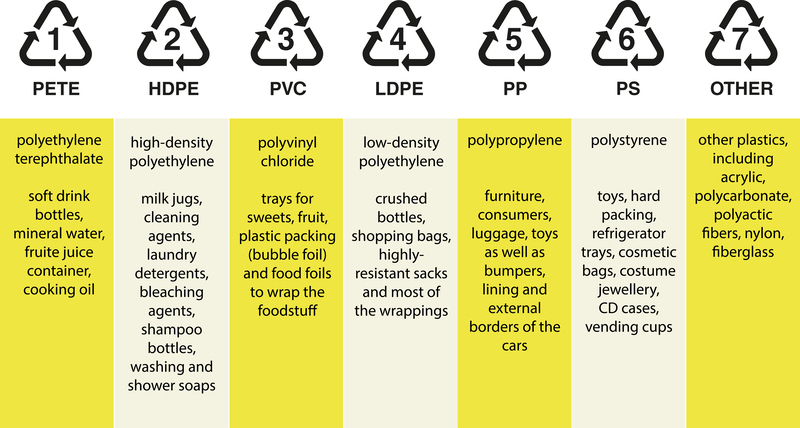An Introduction to Builders Skips for Contractors
Efficient waste management is a crucial aspect of any construction project. One of the most effective and practical solutions for handling construction debris and materials is the use of builders skips. But what are builders skips, and why are they vital for contractors? This comprehensive guide will introduce you to everything you need to know about builders skips for contractors, including their types, sizes, benefits, regulations, and best practices.
What Are Builders Skips?
A builder skip is a large, open-topped waste container designed to handle significant amounts of construction, demolition, and renovation waste. These skips are commonly seen on building sites, home renovation projects, and commercial property developments. Their robust construction and spacious design make them ideal for disposing of bulky materials such as bricks, concrete, timber, metal, and general building waste.
Key Features of Builders Skips
- Robust Construction – Made from heavy-duty steel for durability.
- Easy Loading – Open-top design allows for quick and efficient loading of materials.
- Large Capacity – Available in a range of sizes to cater to different project needs.
- Versatility – Suitable for a variety of waste types except hazardous materials.

Why Are Builders Skips Essential for Contractors?
Every construction or renovation project inevitably produces waste. As a contractor, efficient waste management ensures site safety, compliance with regulations, cost savings, and environmental responsibility. Builders skips offer a one-stop solution for managing waste effectively.
Top Reasons Contractors Use Builders Skips:
- Streamline Waste Disposal – Avoid multiple trips to waste disposal sites.
- Site Organization – Keep work areas clean, reducing risks and promoting safety.
- Compliance – Adheres to local authority and environmental regulations.
- Cost-Efficient – Minimize expenses related to waste transport and disposal.
- Environmentally Friendly – Enables responsible recycling and disposal of waste materials.
Types and Sizes of Builders Skips
Not all building projects are the same. That's why contractors have access to a variety of skips, each serving different needs. Sizing and skip type selection can dramatically affect the project’s waste management efficiency.
Common Types of Builders Skips for Contractors
- Standard Builders Skip – The quintessential skip for most construction tasks, available in popular sizes like 6-yard and 8-yard.
- Maxi Skips – Larger options, such as 10-yard or 12-yard, cater to extensive renovation or demolition jobs.
- Roll-on Roll-off Skips (RoRo) – Ideal for substantial commercial projects, with capacities ranging from 15 to 40 yards.
- Enclosed or Lockable Skips – Provide added security and prevent unauthorized access or illegal dumping.
Standard Builder Skip Sizes
| Skip Size (Cubic Yards) | Approximate Capacity (Bin Bags) | Suitable For |
|---|---|---|
| 4 Yard | 30–40 | Small refurbishments, minor clearances |
| 6 Yard | 50–60 | Medium renovations, kitchen or bathroom refits |
| 8 Yard | 60–80 | Building sites, major home improvements |
| 10–12 Yard | 100+ | Large building/demolition projects |
Tip: Choosing the right skip size is crucial for maximizing site efficiency and cost-effectiveness. Ordering a skip that's too small can mean extra trips and higher costs, while one that's too large might waste valuable site space and budget.
What Can and Can't Go in a Builders Skip?
Understanding what you can put in your builder skip is vital to remain compliant and avoid additional charges. Most construction and demolition debris are acceptable, but some materials are strictly prohibited due to environmental and safety regulations.
Typical Acceptable Waste in Builders Skips
- Bricks and concrete
- Plasterboards
- Soil, rubble, and hardcore
- Timber and wood
- Metal and glass
- Packaging and general mixed construction waste
Items Prohibited from Builders Skips
- Asbestos
- Chemicals and solvents
- Electrical equipment (fridges, TVs, etc.)
- Medical waste
- Tyres
- Batteries and paint cans
- Gas cylinders
Always consult your skip hire provider for a detailed list of allowed and banned materials. Disposal of prohibited items could result in fines or refusal of skip collection.
The Legal and Regulatory Aspects of Builder Skips
Skip Permits and Placement Regulations
If your project requires placing a skip on a public road or highway, you will need a skip permit from the local council. Skip permits ensure that skips are placed safely and do not cause obstructions.
- Permits are usually applied for by the skip hire company, but always confirm responsibilities.
- Permits may take several days to process – plan ahead!
- Failure to obtain a permit could lead to fines or removal of the skip.
Waste Disposal Compliance
- Segregate waste streams wherever possible to encourage recycling.
- Do not overload skips – waste should not protrude above the skip rim.
- Use only licensed waste carriers and check for valid certification.
Staying compliant with waste management regulations not only helps avoid legal issues but also bolsters your company's reputation as a responsible contractor.
Cost Considerations for Hiring Builders Skips
The cost of hiring a builders skip varies according to several factors. As a contractor, understanding what influences skip hire prices can help you plan your budget efficiently.
Main Factors Affecting Builders Skip Hire Costs
- Skip Size – Larger skips cost more, but may offer better value for extensive projects.
- Duration – Longer hire periods increase the overall cost.
- Location – Prices vary regionally; urban areas may incur higher costs due to logistics and permit fees.
- Permit Fees – Required when skips are placed on public property.
- Type of Waste – Heavier or specialized waste (like plasterboard) may involve additional processing charges.
For the best value, estimate your waste volume as accurately as possible and discuss pricing transparently with your chosen skip hire provider.
Best Practices for Contractors Using Builders Skips
To make the most of your builders skip hire, adhere to the following best practices:
- Plan Placement – Place the skip in a safe, accessible area that does not obstruct traffic or access to the site.
- Sort Waste – Organize recyclable and non-recyclable materials to facilitate eco-friendly disposal.
- Monitor Skip Content – Educate your workforce about prohibited items and monitor skip contents regularly.
- Avoid Overloading – Never fill skips beyond their edge. Overloaded skips may not be collected and pose safety hazards.
- Secure the Site – Where possible, use lockable skips or place them within fenced areas to prevent unauthorized use.
Safety Tips for Builders Skips on Site
Safety is paramount on any construction site, and managing skips appropriately is a big part of that. Here are some vital safety considerations:
- Use Correct Lifting Techniques when loading heavy materials into the skip.
- Never Enter the Skip or climb inside to rearrange waste.
- Ensure Good Lighting around the skip, especially for early morning or evening operations.
- Keep Pathways Clear of skip-related obstructions to avoid trip and fall accidents.
- Inform Your Team about skip use policies and potential hazards.
Environmental Considerations
As environmental regulations tighten and the construction industry becomes more eco-conscious, proper use of builders skips can help contractors reduce their environmental impact.
- Maximize recycling – segregate different kinds of recyclable materials like metal, wood, and masonry.
- Limit landfill waste by only disposing of non-recyclable items.
- Work with reputable skip hire services that prioritize responsible waste processing.
Your approach to waste management displays both your commitment to the environment and your professionalism as a contractor.

How to Choose the Right Builders Skip Hire Company
Not all skip hire companies offer the same level of service or reliability. Use these criteria to select a provider that will add value to your projects:
- Reliability – On-time delivery and removal are essential for efficient site management.
- Range of Skip Sizes – Ensure the company provides the right skip type and size for your project.
- Compliance – Look for certification and proper waste management documentation.
- Customer Support – Responsive, knowledgeable customer service can resolve logistical issues quickly.
- Praise from Other Contractors – Check reviews and testimonials for trustworthy feedback.
Conclusion: Maximizing Efficiency with Builders Skips for Contractors
Builders skips are indispensable assets for contractors aiming to maintain organized, safe, and compliant construction sites. Whether you're managing a small domestic renovation or a major commercial development, investing in the right skips will streamline your waste management, boost site efficiency, and uphold your legal and environmental responsibilities.
If you are a contractor embarking on any building project, harness the advantages builders skips provide. Select your skip size wisely, follow regulations, prioritize safety, and choose a trusted skip hire company. By doing so, you'll contribute to cleaner, safer, and more sustainable construction sites – every time.
For more insights on builders skips and expert waste solutions tailored for contractors, explore related articles on construction site management and responsible disposal practices.